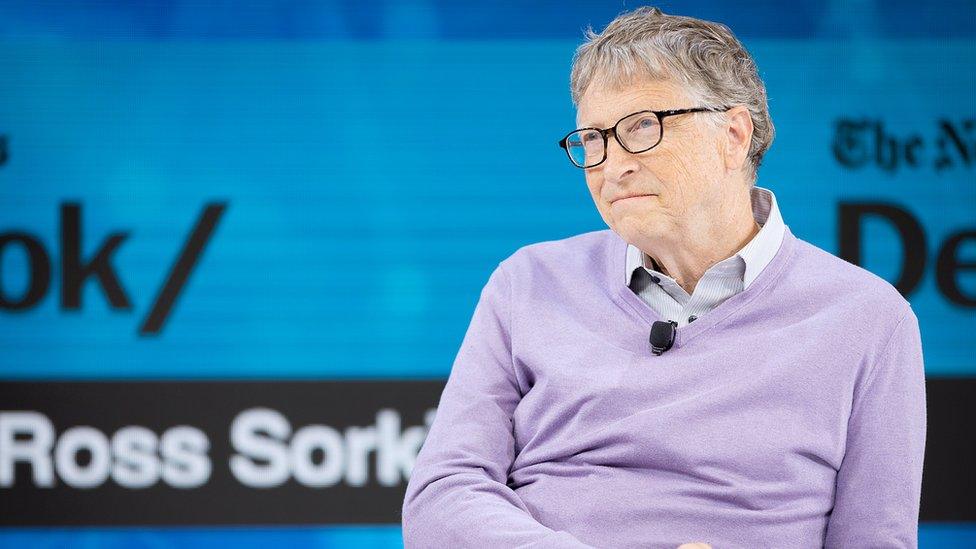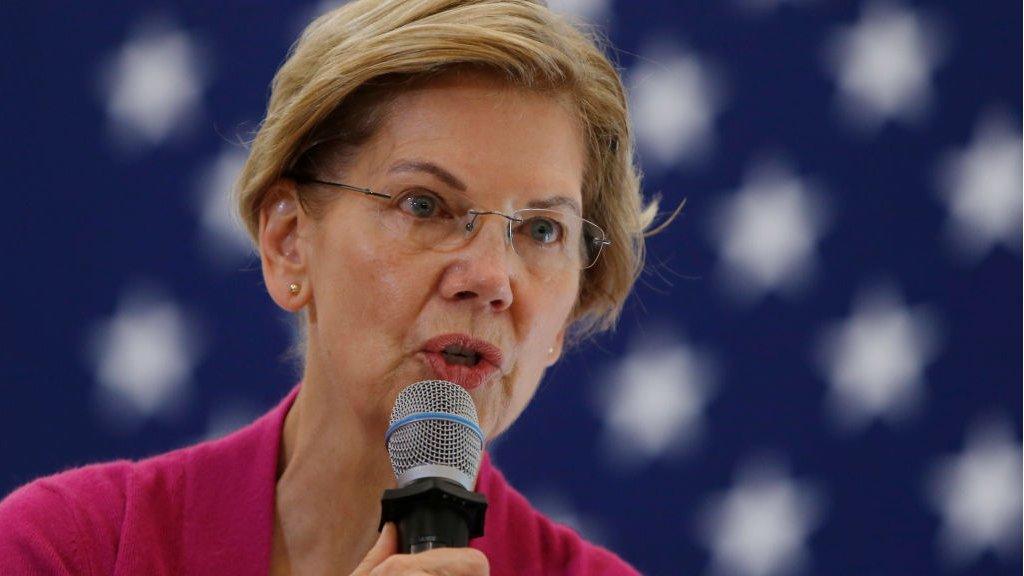Bill Gates criticises Elizabeth Warren's plan for tax on super-rich
- Published

Bill Gates has become the latest billionaire to express concern for presidential hopeful Elizabeth Warren's plan for a new tax on the super-rich.
At a conference, the philanthropist and Microsoft founder said it would stifle business innovation in America.
Ms Warren, a Democratic front-runner in the 2020 presidential race, has offered to meet Mr Gates in response.
It comes after criticism of Ms Warren's policy from figures like Jamie Dimon, head of banking giant JP Morgan.
Under the original plan, households with a net worth between $50m (£39m) and $1bn (£780m) will be charged with a 2% "wealth tax" every year. This would rise to 3% for any households with a net worth of over $1bn.
But last week, Ms Warren suggested doubling the latter rate - from 3% to 6%. She said the money raised from this new tax would be used to fund her healthcare plan, which is expected to cost the federal government $20.5tn over 10 years.
Mr Gates hit back at the idea during a talk at the New York Times DealBook conference in New York on Wednesday.
"I'm all for super-progressive tax systems," he said. "I've paid over $10bn in taxes. I've paid more than anyone in taxes. If I had to pay $20bn, it's fine.
"But when you say I should pay $100bn, then I'm starting to do a little math about what I have left over. Sorry, I'm just kidding," he added.
"So you really want the incentive system to be there and you can go a long ways without threatening that."
Mr Gates is the second-richest person in the world, according to Forbes magazine, with a net worth of $106.2bn.
When asked if he would be willing to meet with her about the policy, Mr Gates said he wasn't sure if Ms Warren would "sit down with somebody who has large amounts of money".
Hours after his comments, Ms Warren said she would "love" to meet Mr Gates to explain her plan in more detail.
Allow X content?
This article contains content provided by X. We ask for your permission before anything is loaded, as they may be using cookies and other technologies. You may want to read X’s cookie policy, external and privacy policy, external before accepting. To view this content choose ‘accept and continue’.
Tax reform has become a key talking point among contenders for the US presidential election. The debate has been partially spurred by tax reform under Donald Trump's administration, which the president dubbed "the biggest tax cut in history".
Mr Trump said cuts would help to boost the economy, but critics argue they disproportionately benefit the country's wealthiest individuals.
Earlier this year, a group of America's richest people penned an open letter calling on presidential candidates to roll out a wealth tax on the super-rich.
"America has a moral, ethical and economic responsibility to tax our wealth more," they said in a letter, proposing that the money be spent on tackling climate change and economic inequality.
Signatories included investor George Soros and Facebook co-founder Chris Hughes. The group said they were non-partisan and not endorsing any candidate.
- Published1 November 2019
